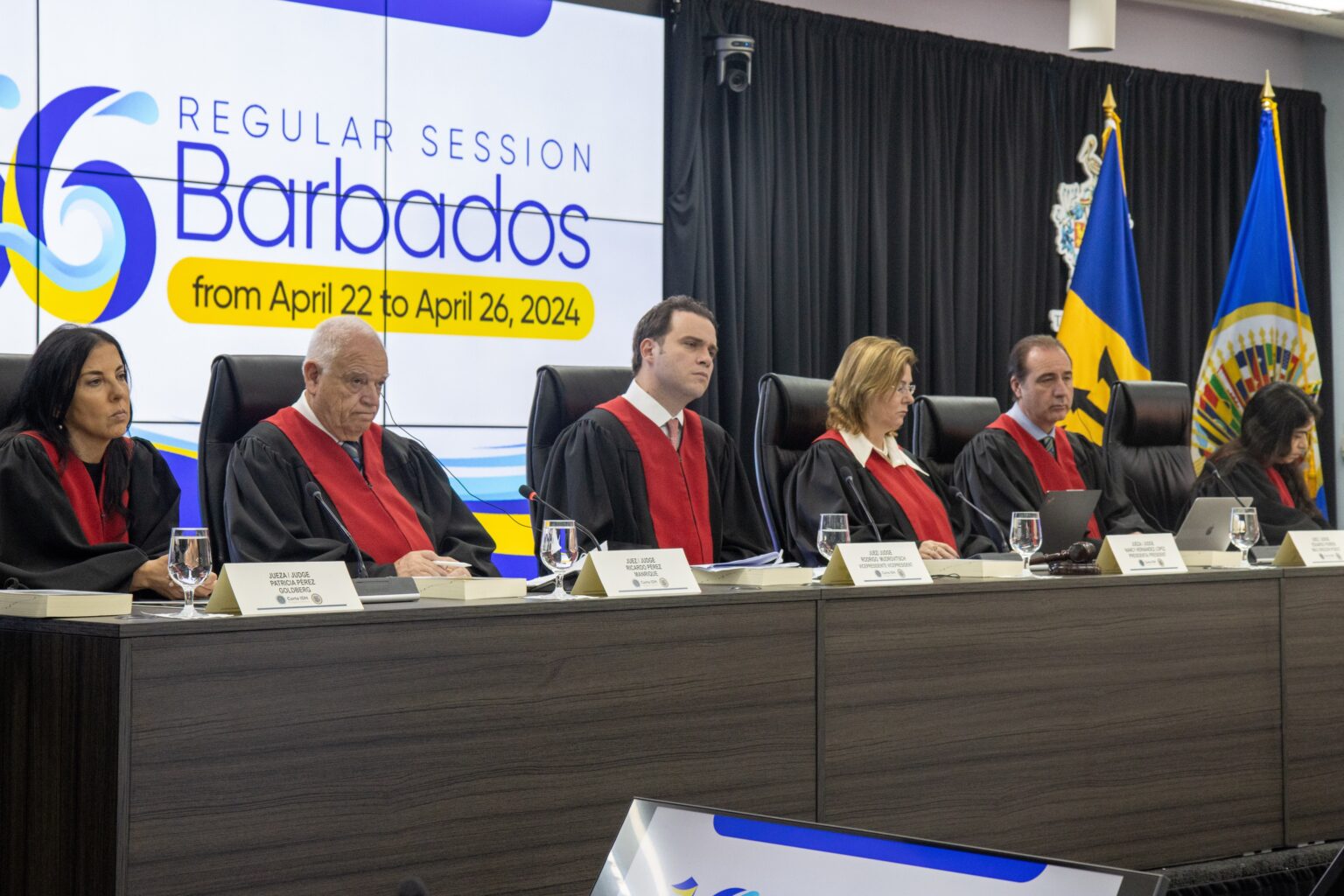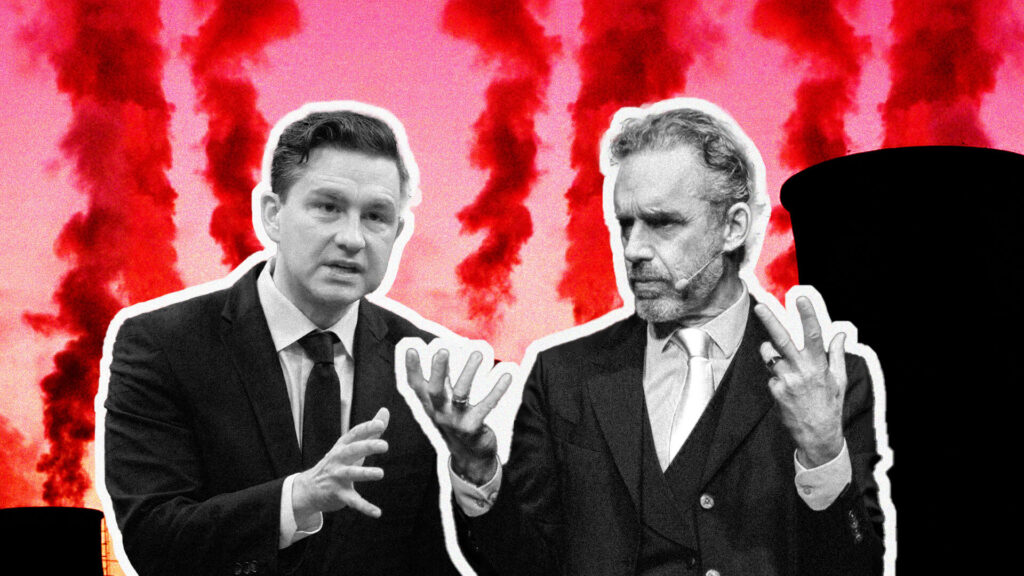In a landmark hearing at the Inter-American Court of Human Rights, legal experts and campaigners argued that businesses, such as the fossil fuel and agriculture industries, have legal duties to stop climate-related human-rights breaches.
A panel of six judges met starting April 23 in Barbados at the University of West Indies for the hearing, which was dubbed “The climate emergency and human rights.” It opened with statements from Chile and Columbia, which had requested that the court provide an advisory opinion on climate change and human rights in 2023.
“The impact of this emergency is not the same for all,” said Sebastián Kraljevich, Chile’s permanent representative to the Organization of American States. “The Caribbean… as well as South America and Central America are highly vulnerable in human terms. We are affected in a way that is disproportionate to the responsibility of our communities in generating this emergency.”
Kraljevich added that climate change is especially devastating for children, Indigenous peoples, farming communities, and women. “This fact has been proven by the scientific community; the world is faced with a catastrophe. This court now has to define the legal consequences stemming from this.”
Representatives from the two countries asked the court to set out what responsibilities that states have to tackle climate change and how to stop the crisis from violating people’s human rights. They asked for specific clarity on children’s and women’s rights, environmental defenders, as well as common but differentiated responsibilities — wherein the wealthy countries most responsible for causing climate change take the lead in tackling it — and loss and damage.
The court then heard from officials from other nations, international bodies, and even ordinary citizens on the frontlines of the climate crisis.
Legal experts dominated the three-day hearing, held from April 23 to 25. Nikki Reisch, climate and energy director at the Center for International Environmental Law, argued that businesses have legal obligations to stop causing climate-related harms, whether or not governments are fulfilling their own obligations.
“It’s not possible to guarantee human rights without combating climate change,” said Reisch. “And it’s not possible to combat climate change without regulating business conduct, specifically the climate-destructive conduct of those industries that are the primary drivers of greenhouse gas emissions: the fossil fuel and agro-industrial sectors.”
The Costa Rica-based court was set up in 1979 to interpret and apply the American Convention on Human Rights, a treaty ratified by members of the Organization of American States. Twenty states have accepted its jurisdiction, including most Latin American countries and several Caribbean islands. Neither the U.S. nor Canada have done so.
The Inter-American Court of Human Rights is the third international court tasked with providing an advisory opinion on climate change, alongside the International Court of Justice and the International Tribunal for the Law of the Sea. However, the Inter-American court is the only one focusing specifically on human rights, and is generally considered the most progressive.
Reisch outlined the decades-long campaign of climate obstruction and deception conducted by the fossil fuel industry, agribusiness, and other large corporate actors, and told the court that governments were responsible for ensuring full and adequate reparation for the harms caused by such corporate conduct. “To fulfill their human rights obligations in the context of the climate emergency, states must confront the industries driving it and curb their capture of climate policy.”
Reisch’s comments were echoed by Sophie Marjanac, accountable corporations lead at the environmental law charity ClientEarth. Marjanac pointed to the United Nations (UN) Guiding Principles on Business and Human Rights, which set out state obligations to regulate companies to avoid human rights offenses “even when business activities are not prohibited in international law.”
UN experts have said states must enact climate due diligence rules over every part of a business’s activities to comply with the UN Guiding Principles, and last year sent a letter of concern to Saudi Arabian oil giant Aramco, saying its expansion and ongoing exploration of fossil fuels threaten human rights.
Marjanac also noted that the EU has recently approved — albeit in a watered down version — a law to make companies hunt down human rights abuse and environmental harm in their supply chains, and to adopt climate transition plans. She argued that detail of this new law “demonstrates that reducing emissions rapidly across all parts of the business is required to comply with corporate human rights responsibilities in respect of climate change.”
Marjanac also made the case to the court that governments were responsible for regulating all emissions generated by companies registered within their borders — including their broader Scope 3 emissions — as well as emissions from the extraction of fossil fuels within their territory that are sold onto the global market, and from fossil fuels financed by the state or by financial institutions registered there.
A recognition of this by the court “would close a significant loophole in international climate change law and confirm that states are responsible under international human rights law for the acts and omissions which facilitate the sale of fossil fuels on the global market,” said Marjanac. “Such a finding is also necessary to ensure that state measures are capable of being effective.”
During time set aside for questions, the court’s judges sought clarity on many issues, such as how to define states’ fair share of emission reduction, the role of the Paris Agreement in international law, and how to balance the phase-out of fossil fuels with ensuring a fair transition.
“It’s not possible to guarantee human rights without combating climate change. And it’s not possible to combat climate change without regulating business conduct.”
– Nikki Reisch
The sole corporate speaker at the Barbados hearing was Juan Sebastián Ortiz Mendieta, legal advisor for Colombia-based Grupo de Energía de Bogotá. The company transports and distributes gas and electricity in several Latin American countries.
Mendieta offered the court the company’s “technical” expertise, stressing that access to energy is fundamental to the expression of human rights, and saying it had to tread carefully in governing the pace of the move to renewables to ensure a just transition in Latin America.
One judge, Argentina’s Verónica Gómez, commented that she had expected more interventions from businesses during the hearing, and said she wanted to give the Colombian company space to make its case.
But many speakers sought to put the fossil fuel industry’s climate actions in the spotlight.
Maria Alejandra Serra Barney, associate legal counsel of Greenpeace International, asked the court to end the corporate “legacy of impunity.” “Large fossil fuel companies and agri-industry companies are some of the major financial entities of the world; some of them are even as powerful or more powerful financially than states,” she noted. “Their financial power and their influence on climate policy means that state action itself alone cannot fully prevent or repair the damage caused by their conduct.”
She drew parallels with a ruling by the court in March that Peru had violated the right to a healthy environment of people living in the country’s “most contaminated town.” The state was held responsible for widespread pollution caused by the La Oroya smelter complex, which was operated by Doe Run Peru (an indirect subsidiary of U.S.-based Doe Run Company) from 1997 to 2009.
The Inter-American Court of Human Rights has scheduled two more hearings in the Brazilian cities of Brasília and Manaus in May, after which it will start sifting through the huge volume of evidence it has gathered. The final advisory opinion is expected to be published towards the end of this year or early in 2025.
Subscribe to our newsletter
Stay up to date with DeSmog news and alerts







